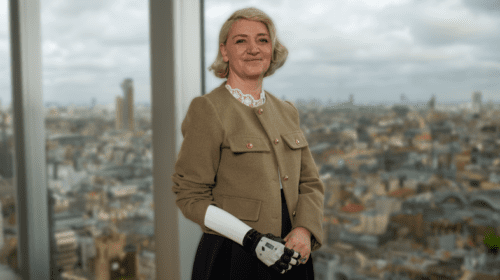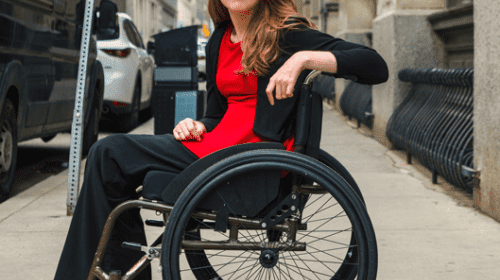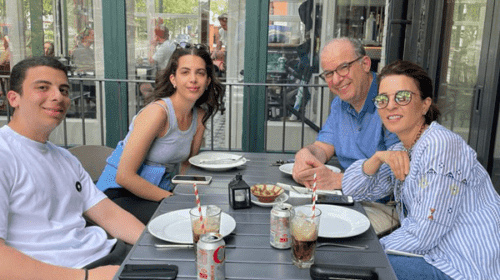Angela McKane: Justin, hi! It is so lovely to speak together today.
Justin Cohen: Hello! Yes, lovely to speak, and to speak with you here from Chicago!
AM: Ah, Chicago is close to my heart. I used to spend a lot of time there (well, in Naperville) in my bp days. It was very snowy sometimes, I recall, but the city just dealt with it and kept on going! Very apt for our conversation today now that I think about it. Have you been working in Chicago for a while?
JC: I’ve been in the tech space in Chicago for about 20 years. I was very lucky, as I was introduced to a young entrepreneur by the name of Al Goldstein, back in 2003, as he was building his first company, and he has become an uber successful, serial entrepreneur building organizations. When I joined his first company, now a publicly traded company, I was employee [number] one there, and I just sat in this small, 800 square foot office, right in the suburbs of Chicago, applying for state licenses to be an online lender, and related activities.
At the same time, I was a double major from Indiana University, the Kelley School of Business, in entrepreneurship and management. So, for me, this role was a great opportunity for me to test whether entrepreneurship was something I am really interested in, because this was like an internship. Goldstein was 22 and I had just turned 21! I rejoined his company right after I graduated college in 2005, because I loved the team, and I was able to take over marketing and build the role from the ground up.
They had less than a million dollars in revenue at the time, and were now around a 10 person team, and so I had the opportunity to help build the entire marketing function, from myself to 25 marketers focused on international expansion, and over 200 million in annual revenue, and a very successful exit within a couple of years to Cash America, a publicly traded company here in the States. This gave me my first taste of startup life, and I realized I loved it. I love the collaboration, the camaraderie, the experimentation, and the chaos of it as well! Being a former athlete, it gave me that same kind of drive and determination.
AM: Amazing, and congrats on such early success! What kind of sports did you play?
JC: I was a captain on the track team, and I played tennis, but I played a lot of individual sports. I liked the self-determination and working on self-motivation, and so I saw parallels to the startup world, where you just sort of invest yourself in it and go figure it out, and build from there. This attracted me to my next role where I joined a company that was trying to solve PTSD with cognitive behavioral therapy for veterans coming back from war. I headed up our product and marketing team there, helping to build our e-learning modules and initial brand strategy.
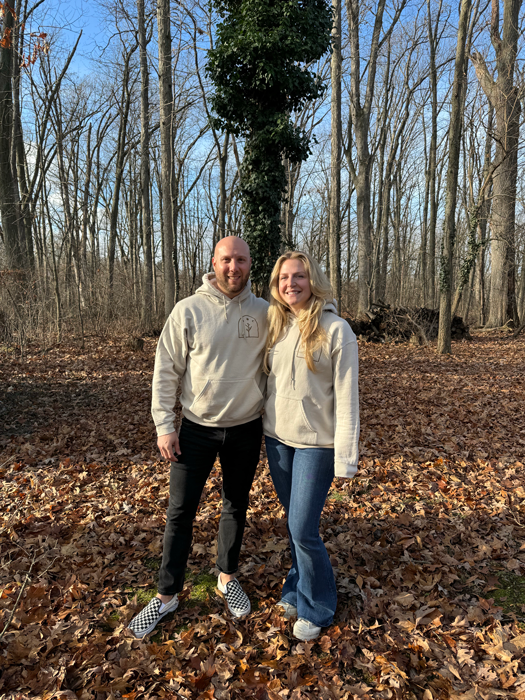
I then rejoined Al Goldstein at a second company, Pangea, which was a small fund at the time for real estate. We had a couple of hundred units they wanted managed and, for every unit that we managed, we did all the leasing, maintenance, pest control – you name it! Our goal was to provide quality homes at affordable rates. We grew the company from those couple of hundred units to over 13,000, making a $120 million annual rent revenue business with over $600 million in assets. I was the chief marketing product officer there.
AM: Justin – this is also amazing – you grew a massive business there!
JC: Yes, with a team of 115 people helping me! I did that for about six and a half years, then I became a founder and [started] a company with my wife and a couple of others in the health and wellness space. We built a b2b SaaS platform for gyms and studios. My wife had previously founded a wellness media company called A Sweat Life and so this was an extension of that, and we were helping gyms digitize some of their in-person experiences. This was back in 2017.
AM: What was it like founding a company with your wife?
JC: I would say it definitely requires balance in terms of how much you take home. It definitely takes conversations to figure out how to separate the two to a degree. We had two other co-founders, who were also friends, and so we had to build into ways of working that it was ok to disagree on things, that we might not always share a view on what was the best way forward for the company. In effect, you need to be able to separate what’s business and what’s personal. It’s actually a really great model, if you can make it work, because we had lots of time for conversation, we could travel together to various conferences, and given that one of the biggest pieces when it comes to startups is trust – well, I have unlimited trust in my wife. So much so that we’re actually building another business together right now as well!
AM: Ah, fantastic – and I wish you both well for tremendous success with that endeavor as well!
JC: Thank you.
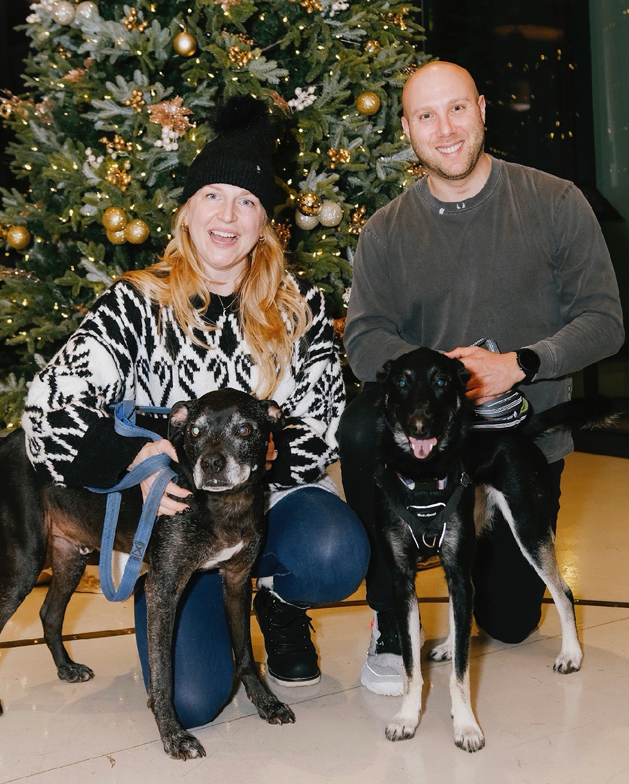
AM: There is no doubt in my mind you’ll be successful, with such a great track record. As well as the successes so far, have there been tough challenges as well?
JC: Yeah, especially while I was working for a company that I helped acquire a digital bank. in April 2021 but, by June, I needed neck surgery, and so I was off from June until September. I returned to help them relaunch the bank in December and then I realized it was time to take a year off and reassess what I wanted to do. What with both COVID-19 and surgery hitting at around the same time, it was enough for me to start thinking about a lifestyle change. My realization was, if I’m going to take on this level of stress at work, then it has to be something I truly care about, that I am really passionate about.
AM: Tell me about the neck surgery.
JC: I had two discs replaced, and I have the little scar right here to show it! It’s a two hour surgery, but it still results in eight weeks of no driving and no physio, let the discs set, wear a neck brace, etc. I had the surgery in the summer, which worked out really nice as I was able to just sit outside, go for walks, I mean I could do nothing else! Of course, the initial week or two after surgery is much harder. You’re drugged up for the pain and you just have to get through it but, after that, I really had some time with my thoughts. It changed my philosophy, not least as this was my third spine surgery.
AM: Oh, your third?!
JC: Yes, I had my first in 2002 on my lower back – a microdiscectomy. Then I had the same microdiscectomy on the other side of my back in 2017.
AM: Were these sports injuries? I know you mentioned you were an athlete.
JC: I think the first one was because I was a sprinter and a long jumper, and I think it created a weakness on that side and it just went out. The neck surgery, though, they believe is more genetic. The discs were bilaterally herniated. It’s possible it’s something I had been living with my whole life.
AM: Was there some significant moment of impact or something that happened resulting in an emergency?
JC: It’s funny; with each of my back injuries, it’s the most minimal thing you can imagine that caused them each time! For the neck injury, I went to go fill up a French press and I yawned while I did it, and I suddenly felt this electric sensation, dropped the French press and I was on the ground, thinking, “What the hell just happened?” I knew something was very wrong. But I still lived with it for two years. I didn’t want more surgery. I got a ton of physical therapy instead, partly because I’d only just started to get better from the previous surgery, and that had knocked me down mentally and physically. I felt like I’d had surgery in 2002, I did all the rehab really well, I was in great physical shape.
Then, in 2008, I was playing softball and went to pick up my duffel bag and my back went out on me. I got three epidurals and physiotherapy and it went away. Great. Then, in early 2017, I worked out one evening, went to bed and in the morning while brushing my teeth, I fell to the floor. I had three epidurals and physical therapy, but this time it just wasn’t getting better.
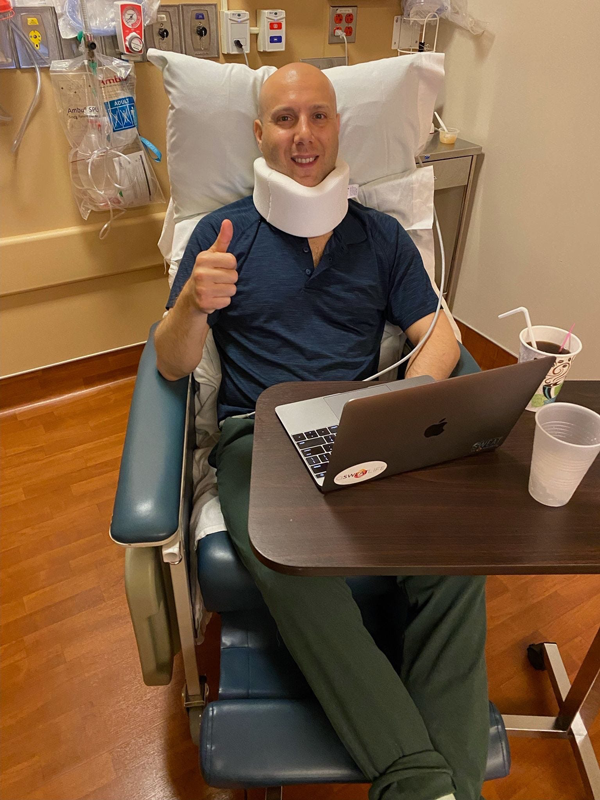
Then, one day, I went to get out of bed to go to a Memorial Day barbecue, and I could barely get up to go to the bathroom. I got an epidural to hold me over while I waited for the surgery slot. So, the third time – for the neck injury – all I could think was, I have just been through all this only for it to happen again. I found myself feeling like I could never relax. I was constantly thinking at any moment in time my back could just go out on me again, and I began to visualize it becoming much worse – and this resulted in me becoming very cautious and nervous. I did rehab every day but, all the same, parasympathetically, I was just always on.
AM: Was there anything you could do that would help?
JC: I did speak with a sports psychologist to try to really mentally fortify myself because, when they told me my discs had herniated in my neck, I almost broke down. I really felt like, there’s only so much you can take, and here it’s happening again. A lot of speaking with the psychologist was about getting myself mentally ready for surgery again, and developing the resiliency I was going to need to get through it.
What worked for me was positive affirmation, setting goals, visualizing in a positive way what it would look like post-surgery, and doing these exercises again even after surgery. It was a journey toward accepting the reality but, at the same time, it felt like the accumulation of years of trauma resulting in PTSD-like symptoms. Still now, if I feel something get tight in my back or neck, I feel a sense of immediate concern that something is going wrong. So, I am continuing to work on that stuff.
AM: Thank you for being so open. These things are really challenging to deal with.
JC: My focus now has been on getting back to working out, regaining confidence, regaining strength. Giving myself permission to travel and feel good. Work and also feel good. That’s why I’ve called my company Bionic Colabs! The collaborative piece references the team you put together, and bionic references super growth.
The collaborative part is so important to me because it’s hard to be a founder, and recovering from injuries showed me that you need the right team of people around you – the right surgeon, the right physiotherapist, the right psychologist… similar thinking applies when you build a business.
This is also why I’m building another new business [called Petite Acres] with my wife! It’s going to be focused on retreat. We found a plot of land in New Buffalo in Michigan, fully tree lined with big oak trees, and we’re going to build out a 150 person wedding venue, with 10 one to two bedroom homes, a gym and a beautiful quarter acre garden – a getaway for everyone. We’re just starting on that.
AM: What a beautiful project to work on Justin! I wish you all the very best for this. Is there any final message you would like to leave for our readers?
JC: Yes, my final message for those reading is that quite simply developing resiliency is a personal journey. It’s okay to go at your own pace, but it’s about trying to be open to it and understanding that it’s okay to ask for help from those around you. I think it is true that getting through the hard stuff helps you realize how much you can get through, even if it is a daily practice. I think it can also help you develop more empathy for others. When you realize that others don’t know or understand what you’ve gone through, you also realize you don’t know what they have endured as well. Everyone has got their own thing going on; it’s about how we can best support each other.
AM: I can imagine contemplating these things under a row of oak trees! Thank you, Justin.
Connect with Justin Cohen on LinkedIn.
Headline photo: Justin Cohen, Birdie, and Jeana Cohen.
Angela McKane works with early-stage startups focused on developing solutions across the defense, transport and energy sectors. Prior to this McKane was VP Technology Insights at bp, where she grew and led a global team for over a decade, delivering actionable insights on emerging technology innovations and investment opportunities to teams across the Group. Earlier in her career, McKane worked at Transport for London (“TfL”) and, prior to that, she worked at her alma mater, the University of Glasgow. McKane is a regular speaker at industry leading conferences including Gastech, CERAweek and more. Connect with McKane onLinkedIn.
Oil and gas operations are commonly found in remote locations far from company headquarters. Now, it's possible to monitor pump operations, collate and analyze seismic data, and track employees around the world from almost anywhere. Whether employees are in the office or in the field, the internet and related applications enable a greater multidirectional flow of information – and control – than ever before.


